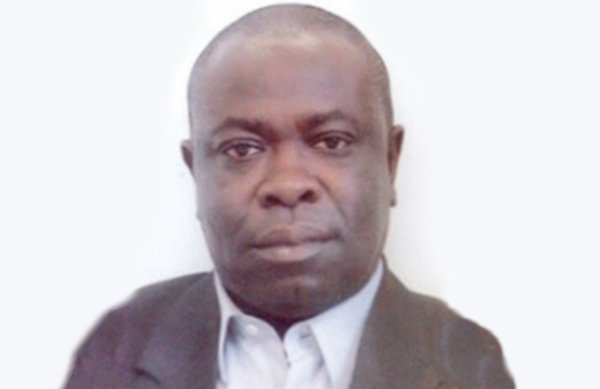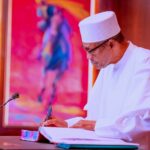
Saying it as it is, the Nigerian armed forces love being in charge. Unlike their counterparts in Western democracies, who carry out their duties diligently behind the scenes, away from the limelight, the Nigerian Armed Forces not only love being seen, they insist on being heard as well. The star-studded epaulettes on their shoulders make them feel rather special. The front view of some of their uniforms can be rather mesmerising; adorned with so many shiny plastic ornaments, senior armed personnel look like the caricature of battled-hardened World War II veterans showing off their exploits to a grateful nation. Never mind that the ‘enemy’, many of them would have probably ever confronted, would have been a fellow Nigerian. Chapter 6, Section 217 (2) of the Nigerian Constitution states: The Federation shall, subject to an Act of the National Assembly made in that behalf, equip and maintain the armed forces as may be considered adequate and effective for the purpose of (a) defending Nigeria from external aggression; (b) maintain its territorial integrity and securing its borders from violation on land, sea, or air; (c) suppressing insurrection and acting in aid of civil authorities to restore order when called upon to do so by the president, but subject to such conditions as may be prescribed by an Act of the National Assembly. As you can see, clearly, there is nothing in the constitution that warrants the ubiquitous presence of the military on the streets or (as is often the case) routinely on television screens dishing out the latest Riot Act.
The talk of ‘security challenge’ that has convulsed members of the Executive branch and the National Assembly, in recent weeks, has given impetus to the presence of uniformed personnel in civilian life so much that it is at times difficult not to think the country is indeed under some type of military rule. General Lucky Irabor, Nigeria’s telegenic, Chief of Defence Staff, has made himself rather visible with his random tour of the country with television cameras in tow. He has been lecturing the public on the military’s dos and don’ts and giving assurances on the forthcoming presidential election. Last week Tuesday, August 9, 2022, he and his men were on the television screens again to announce the arrest of the Owo terrorist attackers, one of whom Idris Ojo is an ‘escapee’ from the Kuje prison outbreak a few weeks ago. Incidentally, the Governor of Ondo State, Rotimi Akeredolu, who is closest to the ground on this matter, stated on TV, the very next day, that the captured Idris Ojo had nothing to do with the prison outbreak after all. The other detainee, Jimoh Ibrahim, was referred to as a “39-year-old criminal” by the general. He is in fact a suspect and will remain so until convicted in a court of law. Prior to being appointed CDS in January 2021, Irabor, from Delta State, has had a stellar military career, taking charge of some elite military units at the army HQ; Training and Doctrine, Training and Operations among others. Educated to Masters’s degree, and numerous overseas training to boot, the general is obviously not short on confidence. Nonetheless, managing public expectations on security or political tension is never the job for the military and it is certainly not one of Irabor’s fortes. The question now is: Has he strayed too far from the military’s line in the sand, effectively usurping the function of a politician, namely the Minister of the Interior, Mr Rauf Aregbesola,?
Subordination of the military to civilian authorities is done for a reason. It is to prevent tyranny and to maintain military cohesion. The founding fathers of the US constitution were acutely aware of the antics of Oliver Cromwell, who marched into the British Parliament and disbanded it so casually in 1653. The military, by nature, is a coercive force. The more they are enabled into the civil society, the more individual liberty is at stake. On the other hand, a strong military is also needed to protect the same civil society, most especially from external aggression. The ultimate strategic control of the US military, for instance, is in the hands of civilians. This is done within the purview of the hallowed checks and balances principle. Article I of the US constitution gives Congress power to authorise war; article II establishes the president as the commander-in-chief with the dual mandate of presiding over the military and enhancing unity of command. Too much military presence in civilian life has the potential for eroding their neutrality and compromise their reputation as non-partisan. This is precisely what informed the enactment of the National Security Act, 1947 in the US. Personnel retiring from service must wait until a period of 10 years has elapsed before they can be eligible for employment in a civilian capacity in the defence department. That cooling-off period has since been reduced to seven years.
This statutory restriction is subject to the rarely invoked waiver by Congress, as in the case of the current US Secretary of Defence, retired General Lloyd Austin, who is now a simple ‘Mr.’ He is one of only 200 to have become a four-star general in the US army’s history and only the 6th African-American to have attained the rank. His appointment to the civilian role is hugely symbolic, as there is still a need for diversity in the army, which President Joe Biden is keen to address. A lack of diversity is seen as a security threat to the entire military. In 2021, white soldiers made up 65 per cent of the army and 90 per cent of its generals or flag officers. Austin is seen as someone who is best placed to facilitate reform and change. The rationale for the Congressional waiver, in his case (he exited the army in 2016), is well understood. By contrast, in Nigeria, there is a reverse tradition of appointing personnel directly from the military into the position of Secretary of Defence. You are in uniform one day and in a civilian the very next day, advising Mr President. The Legislature too is awash with former military officers. Even the current president, Buhari, is still being referenced as “general” in official communications.
Military presence in civil life is seen by many in Nigeria as only a reflection of the societal norm, which tends to reify authority figures. Moreover, since Nigeria has been governed by the military for at least half of its independent existence, it stands to reason that some aspects of its civil life that have been militarised are yet to be fully washed off. There is no reason why an army general is the one lecturing the populace about internal security. That is squarely the job of Mr Aregbesola, the authentic Minister of the Interior. His office is directly in charge of policing and their strategic deployment—supposedly. The army should not be popping up on the television screens telling people what to do.
The Chief of Defence Staff also had the brass neck to appear on TV in June this year, rebuking the Governor of Zamfara State, Bello Matawalle, for urging the police in his state to issue gun licenses to citizens for self-defence. He spoke at a Defence College event in Abuja: “There are other issues of governance that the governor could have addressed using the instrumentalities of the law available to bring greater peace and security.” No elected leader worth his salt would ever take instructions from a military officer of any rank, in this day and age, not even in Nigeria. So, let us send a collective radio message to the meddlesome general. Click: You are walking in oversized boots, return to base immediately. Do you copy?
[email protected]





